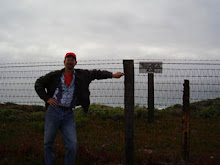Wordsmiths

SURVEYING THE FLOOD
TOM nearly spoke three times before finally lapsing into silence. Then he lowered his binoculars and said “No, that was the last one.”
The rest of us kept our binoculars raised. The others may have still been scouring the scene, looking for survivors, but I was just hiding. I didn’t want to look anybody in the eye.
We had been at it since before dawn the day before. Not that it made any difference. When we got there, we couldn’t see anything, and once the sun came up, we didn’t know what we were looking for. We had been mustered up to go fight a war in Mexico, which was over by the time we mustered up, and they called us up to help the flood victims because we were there. We didn’t know what to do.
At first we tried to ride out to the survivors. We saw people clinging to logs, to the remains of rooftops, and we figured we could ride out to them, that the water might not be any higher than a horse’s shoulder. The first few times the horses lost their feet under them were tough, but we still managed to make ground. But when the first horse stepped on the first submerged body, that was the end of it. Davey’s horse nearly drowned, trying to walk backwards to the high ground that had become a shoreline. We turned our mounts and lead them as calmly as we could back to dry ground. After that, the horses wouldn’t even face the water without shying away. No amount of coaxing would convince them to countenance the fetid floodwaters.
When the boats finally came, then we started to make something of a difference. We spotted survivors, shouting and pointing the boats to them. We worked through the night, making and lighting torches, measuring out the newly formed shores and surveying them yard by yard. At one point, we talked of starting to recover dead bodies, but before the talk turned to actions, we realized that somebody had already formed parties to fish out the corpses. We were glad of it. Every so often we would come across a pile of them, stacked like sawn lumber, and we didn’t care who it was collecting the bodies—either survivors or prisoners, we reckoned—we were simply glad it wasn’t us.
Tom’s head moved a half an inch to the left and to the right, and then he raised his glassed back to his eyes again, like me, unwilling to countenance the others. I suspected that he, like I, was thinking the same shameful thought. I didn’t want to help anymore. I just hoped the goddamned thing was over.
TOM nearly spoke three times before finally lapsing into silence. Then he lowered his binoculars and said “No, that was the last one.”
The rest of us kept our binoculars raised. The others may have still been scouring the scene, looking for survivors, but I was just hiding. I didn’t want to look anybody in the eye.
We had been at it since before dawn the day before. Not that it made any difference. When we got there, we couldn’t see anything, and once the sun came up, we didn’t know what we were looking for. We had been mustered up to go fight a war in Mexico, which was over by the time we mustered up, and they called us up to help the flood victims because we were there. We didn’t know what to do.
At first we tried to ride out to the survivors. We saw people clinging to logs, to the remains of rooftops, and we figured we could ride out to them, that the water might not be any higher than a horse’s shoulder. The first few times the horses lost their feet under them were tough, but we still managed to make ground. But when the first horse stepped on the first submerged body, that was the end of it. Davey’s horse nearly drowned, trying to walk backwards to the high ground that had become a shoreline. We turned our mounts and lead them as calmly as we could back to dry ground. After that, the horses wouldn’t even face the water without shying away. No amount of coaxing would convince them to countenance the fetid floodwaters.
When the boats finally came, then we started to make something of a difference. We spotted survivors, shouting and pointing the boats to them. We worked through the night, making and lighting torches, measuring out the newly formed shores and surveying them yard by yard. At one point, we talked of starting to recover dead bodies, but before the talk turned to actions, we realized that somebody had already formed parties to fish out the corpses. We were glad of it. Every so often we would come across a pile of them, stacked like sawn lumber, and we didn’t care who it was collecting the bodies—either survivors or prisoners, we reckoned—we were simply glad it wasn’t us.
Tom’s head moved a half an inch to the left and to the right, and then he raised his glassed back to his eyes again, like me, unwilling to countenance the others. I suspected that he, like I, was thinking the same shameful thought. I didn’t want to help anymore. I just hoped the goddamned thing was over.
Labels: Wordsmiths


3 Comments:
can't comment yet. must not read before I do mine,.
But the temptation....it's STRONG.
well done. This reminds me of a dream I had once about a plane crash. Bodies all over the ground, in the trees, etc. I remember feeling overwhelmed with all the death.
Oooh, I like it. Would have loved to have known why they were measuring the shoreline. Were the waters not expected to recede?
Post a Comment
<< Home